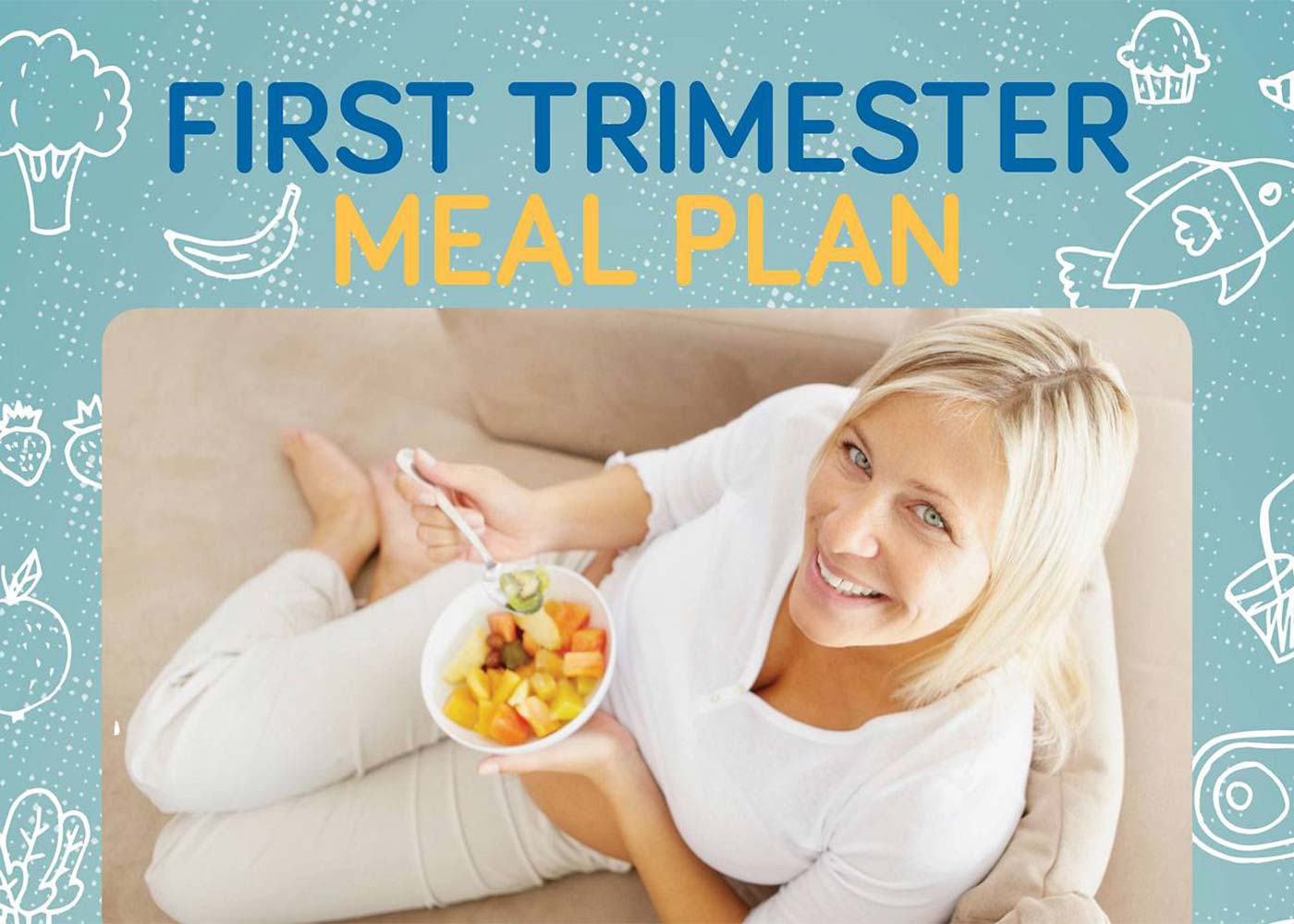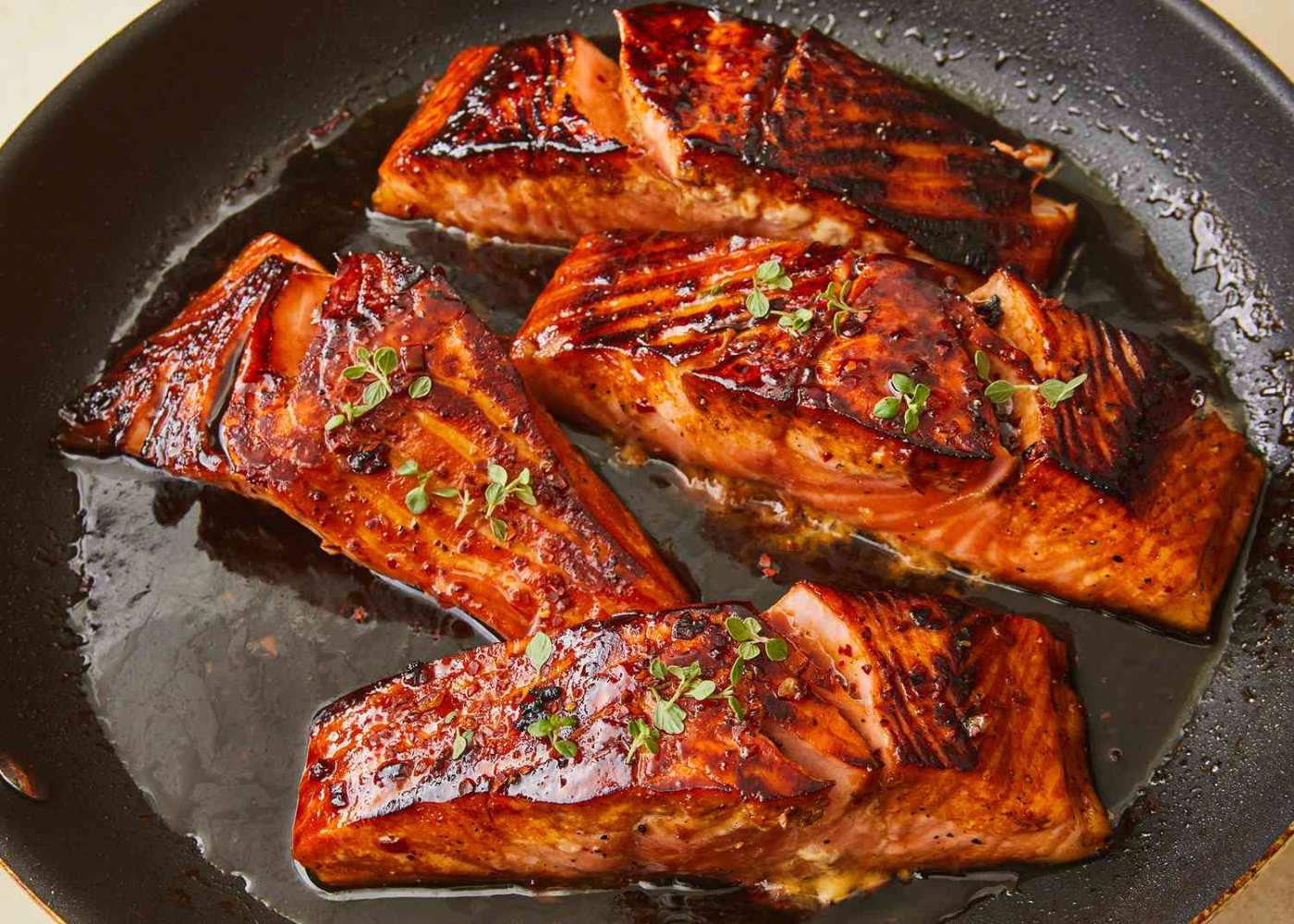The first trimester is an exciting yet critical period. Energy Meal Plan Dubai advises that It is crucial to focus your diet while your body goes through multiple changes to promote the healthy growth of your child. We'll walk you through the best 7-day first-trimester maternity meal plan in this post to make sure you're giving your body the nutrition it needs for this important trip.
Knowledge of the First Trimester
You can (and need to) start preparing your body to carry a healthy pregnancy even before you become pregnant. The most crucial vitamin to be aware of even before pregnancy is folic acid. Starting at least one month before conception and continuing throughout the pregnancy, women need to take 400 mcg of folic acid everyday. To be sure, always read the label before selecting a vitamin or supplement. Most prenatal vitamins typically include 400–800 mcg of folic acid.
Although there are many foods that contain folic acid, like beans, lentils, fortified cereals, and dark leafy greens, you still need to take a prenatal vitamin to ensure you're receiving enough.
Since pregnancy dating starts on the first day of your last menstruation, when you get that plus sign you are already around four weeks along. The first 13 weeks of your pregnancy is called first trimester. Pregnancy hormones, particularly estrogen and progesterone, are physically increasing in the body, which can result in nausea and morning sickness. The levels of human chorionic gonadotropin (HCG) are also rising. Some people think that this hormone, which is the one found in your at-home pregnancy test, is what causes nausea and frequent urination.
Progesterone slows down muscle activity, which in some women might result in constipation. As the developing baby implants in the uterus, you can also have minor bleeding; however, unless the bleeding is serious, you shouldn't be concerned about it. Instead, you should call your doctor. Expect really painful breasts as well. Your body is already getting ready to start producing milk.
Throughout these first 13 weeks, a lot happens. In fact, your kid will weigh one ounce and have limbs and legs before the end of the first trimester. The development of reproductive organs, fingernails, and toenails will also begin. It makes sense that you're worn out.
Nutritional Requirements
Let's now explore the crucial dietary needs for the first trimester. Your body requires a variety of vital nutrients to support your baby's quick development and growth. These include micronutrients like vitamins and minerals as well as macronutrients like proteins, lipids, and carbs.
These nutrients are crucially provided by a balanced diet. Consuming a range of foods from various food categories is essential to ensuring that you get all the nutrients required for a healthy pregnancy. As you enjoy the tastes of nature's bounty, embrace the power of nutrition.

General Recommendations for a Healthy Pregnancy Diet Meal Plan
For the health of both you and your developing baby, it's imperative that you continue eating a balanced diet during your pregnancy. A range of nutrient-dense foods should be included in a healthy pregnancy diet meal plan to supply the essential vitamins, minerals, and energy. Following are some general principles:
1. Nutrient-dense foods and balanced meals
Each meal should contain a variety of entire grains, lean proteins, fruits, veggies, and healthy fats. This guarantees a balanced intake of important nutrients.
2. Adequate hydration and the significance of water intake
To keep hydrated throughout the day, drink lots of water. Aim for at least 8 to 10 glasses of water each day, with more if you're active or it's warmer outside.
Important Nutrients During the First Trimester
The first trimester of pregnancy is a critical time for certain nutrients to be consumed. The essential nutrients are listed below:
1. Folic Acid
The neural tube, which develops into the baby's brain and spinal cord, needs folic acid to grow properly. Include folic acid-rich foods including leafy greens, citrus fruits, legumes, and grains that have been fortified.
2. Iron
Healthy blood synthesis and oxygen transfer require iron. Iron consumption is essential during pregnancy because blood volume rises to support the developing baby. Lean meats, chicken, fish, fortified cereals, and dark leafy greens are some examples of foods high in iron.
3. Calcium
Both you and your baby need calcium for the growth of healthy bones and teeth. To achieve your calcium requirements, include dairy products, leafy greens, fortified plant-based milk and calcium-enriched foods in your diet plan.

4. Protein
Numerous studies have demonstrated the significance of eating enough protein for the growth of your muscles and those of your unborn child. During pregnancy, it is advised that you consume at least 60g of protein daily. Lean meats, fish, beans, nuts, seeds, dairy, legumes, and fish are among the several foods high in protein.
5. Vitamin C
When it comes to preserving the health of cells, vitamin C is crucial. A balanced diet ought to give you all the vitamin C you need because it is rich in many fruits and vegetables. Consume foods strong in vitamin C, such as peppers, brussels sprouts, broccoli, potatoes, strawberries, and blackcurrants, as well as citrus fruit (such as oranges and orange juice).
6. Vitamin D
The body's calcium and phosphate levels are controlled by vitamin D, which is crucial for the growth of bones, teeth, and muscles. A minimum of 10 mg of vitamin D daily is required. While vitamin D may be obtained through sunshine, you might require a supplement in the gloomier winter months. Eggs, red meat, and fatty fish (such as tuna, mackerel, salmon, and sardines) are other foods that contain vitamin D.
7. Omega-3 Fatty Acids
Particularly significant polyunsaturated fats to take are omega-3 fatty acids. They provide a variety of health advantages, including lowered blood pressure, lipids, inflammation, and age-related mental decline.
The fatty fish like salmon, mackerel, tuna, sardines, and trout contain the highest concentration of it.
Foods to Avoid in the First Trimester of a Pregnancy Diet Plan
Treat yourself once in a while, but avoid making these meals a regular part of your diet:
1. Junk food like potato chips and fast food.
2. Refined carbs like white bread, flour tortillas, spaghetti, crackers, and biscuits
3. Fried meals, such as doughnuts, french fries, and fried meats.
4. Sugar-sweetened drinks, including soda, sweetened tea, and sports drinks.
5. Processed meats, including salami, bacon, tinned beef, and sausages.
6. trans fats like vegetable oil and margarine.

Sample Meals
Let's get started with some example menu suggestions that highlight the wonderful variety of your 7-day food plan. Start each morning with a healthy breakfast dish that includes Greek yogurt, fruit, and crispy granola. You will feel revitalized as you begin your day with this colorful mix.
Enjoy a vibrant salad for lunch that is packed with cherry tomatoes, grilled chicken, verdant greens, and a splash of olive oil and lemon dressing. This healthy supper will give you the energy you need all afternoon.
Enjoy a filling meal of baked salmon, quinoa, and roasted veggies for supper. This meal is a veritable feast for both your palate and your baby's growth since the omega-3 fatty acids in salmon are crucial for your baby's brain and eye development.
Choose healthful snacks like carrot sticks with hummus, a handful of almonds, or a cool fruit smoothie when it comes to munching. Your energy levels will remain consistent as a result of these little, regular meals, which also guarantee a steady supply of vital nutrients for both you and your newborn.
Addressing Common Challenges
There could be some difficulties during the first trimester, but don't worry—with a little additional care and attention, you can get through them. It may be difficult to eat because of morning sickness and nauseousness, but don't give up. Try to eat small, regular meals throughout the day that are made up of calming herbal infusions, plain crackers, ginger tea, and other foods that are easy on the stomach.
Another part of pregnancy that may be both perplexing and humorous is food desires and aversions. During this period, embrace the distinctiveness of your taste preferences while continuing to include a range of nutrient-rich foods in your diet. Find inventive methods to modify meals to fit your appetites and aversions while paying attention to your body's cues.
It's important to stay hydrated, especially in the first trimester. To keep your levels of hydration at their ideal levels, consume lots of water, herbal teas, and fresh juices. Keep in mind that your body is exerting significant effort to sustain new life, and that being hydrated aids in digestion, circulation, and general health.
Supplements and Foods Safe for Pregnancy
Your nutritional demands are mostly met by a well-balanced diet in addition to prenatal vitamins. To find out which prenatal vitamin is best for you, speak with your doctor. These supplements make sure that you and your baby get enough of the vital vitamins and minerals that may be hard to get from diet alone.
Knowing which foods are safe to eat while pregnant is just as crucial as fuelling your body. To reduce the risk of contracting foodborne diseases, some foods should be avoided, such as uncooked dairy products, raw or undercooked meat, mercury-rich fish, and specific kinds of seafood. Put your safety first, and seek out a thorough list of foods to stay away from from reputable sources.

consulting a professional
Since every pregnancy is different, it is essential to obtain competent advice at every stage of your pregnancy. A regular prenatal check-up with your doctor will make sure both you and your unborn child are developing normally. A licensed dietitian or nutritionist with expertise in prenatal nutrition should also be consulted. They may offer tailored advice based on your particular requirements and assist with any worries you might have.
Physical Exercise and Sleep
Pregnancy advantages from keeping an active lifestyle are numerous. Walking, prenatal yoga, and swimming are examples of light to moderate workouts that can aid with circulation, weight management, mood enhancement, and getting your body ready for delivery. To be sure your workout program is safe for you and your unborn child, check your doctor before beginning or continuing it.
The requirement for rest and relaxation is equally crucial. Pay attention to your body's signals and give yourself permission to take pauses as required. Make self-care a priority and engage in pursuits that make you happy and calm since pregnancy is a period of physical and emotional development.
Emotional Stability
More than simply physical changes take place during pregnancy. A variety of emotions might be triggered by hormonal changes and the prospect of becoming a mother. In this period of transition, it's critical to put your emotional health first.
Spend time doing things that make you happy and peaceful, whether it's journaling, being in nature, doing mindfulness exercises, or spending time with loved ones. Spend time with people who build you up and who care about you, giving you a safe place to voice your ideas and worries.
Preparing a Seven-Day Meal Plan
We have created a thorough 7-day food plan designed especially for the first trimester to make your road towards a healthy and satisfying pregnancy easier. With the aid of this meal plan, you may produce a culinary masterpiece that tantalizes your palate while satisfying your nutritional requirements.
Careful consideration of calorie consumption and portion sizes is essential for a successful meal plan. You can give your body the energy it requires without overeating by balancing these components. Keep in mind that you may modify this plan to meet your specific tastes and nutritional needs.
Meal plan for 7-Days during the first trimester
Day 1:
1. Breakfast: omelet with spinach and mushrooms and whole-grain bread.
2. For Lunch: A salad with grilled chicken, mixed greens, avocado and cherry tomatoes.
3. For Dinner: Baked salmon, quinoa, and steamed asparagus.
4. For a Snack: Greek yogurt with berries and a handful of almonds.

Day 2:
1. Breakfast: Chia-seed-infused overnight oats with sliced bananas and honey.
2. For Lunch: Whole-grain wrap with turkey, hummus, and vegetables.
3. For Dinner: Roasted veggies and brown rice with lentil curry.
4. Snacks: A few pieces of dry fruit and carrot sticks with hummus.
Day 3:
1. Breakfast: whole-grain pancakes with fresh fruit and Greek yogurt on the side.
2. For Lunch: Quinoa salad with feta cheese and roasted veggies.
3. For Dinner: Steamed broccoli and sweet potato mash with grilled chicken breast.
4. A handful of walnuts and apple slices with almond butter for a snack.
Day 4:
1. For Breakfast: whole-grain bread, Veggie scramble with tofu and bell peppers.
2. For Lunch: Mixed bean salad with cucumbers, cherry tomatoes, and a mild vinaigrette.
3. For Dinner: Brown rice and snap peas with shrimp.
4. For Snack: Cottage cheese, peaches, and a tiny amount of sunflower seeds.

Day 5:
1. First thing in the morning, have whole-grain cereal with milk or plant-based milk and fresh berries.
2. For Lunch: Grilled veggie and goat cheese wrap served with tiny carrots on the side.
3. For Dinner: Baked fish, roasted Brussels sprouts, and quinoa.
4. Snack: A smoothie made with yogurt, mango, spinach and a scoop of protein powder.
Day 6:
1. For Breakfast: Scrambled eggs and avocado toast on whole-grain bread.
2. For Lunch: a chickpea salad with cherry tomatoes, cucumber, and a lemon-tahini dressing.
3. For Dinner: Turkey meatballs over whole-wheat spaghetti with marinara sauce.
4. For a Snacks: Trail mix with nuts, seeds, and dried fruit.
Day 7:
1. For breakfast have a vegetable frittata and some whole-wheat bread.
2. For Lunch: Quinoa-stuffed bell peppers and a side salad.
3. For Dinner: Green beans and roasted sweet potatoes with tofu.
4. For a Snacks: A modest amount of cereal and Greek yogurt with honey.
Importance of Regular Meals and Portion Control
It's crucial to watch your portion sizes and eat often throughout your pregnancy. By using this method, pain is reduced and digestion is facilitated. Avoid overeating by paying attention to your body's desire for food and fullness cues. Keeping a healthy weight increase is essential for both your health and the growth of your unborn child.
The Second-Trimester Preparations
Take some time as your first trimester draws to a conclusion to consider your experiences and be ready for the thrilling ride that lies ahead—the second trimester. Many expecting moms are experiencing a resurgence of vigor and enthusiasm at this time. During this time, take care of your body and strengthen your relationship with your developing child.
As you enter the second trimester, you must modify your diet plan to account for your body's changing demands and those of the growing baby. To promote a healthy and joyful pregnancy, your healthcare professional will make specific advice, walk you through any required changes, and guide you.
You'll have the chance to participate in a number of prenatal screenings and tests in the following weeks that will provide you important information on the growth and development of your unborn child. Enjoy these moments as you see the wonder of life taking shape inside of you.
Keep in mind that every pregnancy journey is distinct, so it's crucial to treasure and honor your personal experience. Trust your gut feelings, pay attention to your body, and enjoy the amazing experience that is parenthood.
Conclusion
Congratulations on starting the process of giving your unborn child the healthiest start possible in life by following a wholesome and well-balanced first-trimester eating plan. You are laying the groundwork for a healthy and successful pregnancy by include a range of nutritional meals, staying hydrated, and getting expert counsel.
Face this transformational period with love, joy, and appreciation as you embrace its beauty and mystery. Seek for support, make friends with other pregnant women, and keep in mind that your mental health deserves just as much attention as your physical health.
Trust the wisdom of your body and the wonder of life that is taking place inside of you as you continue on this amazing adventure. Nurture your body and spirit, stay connected to your infant, and savor each moment.






























